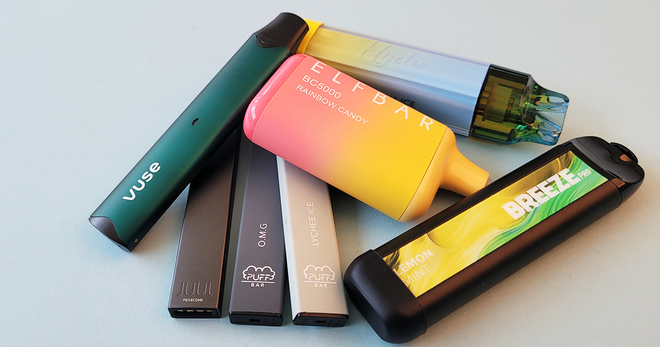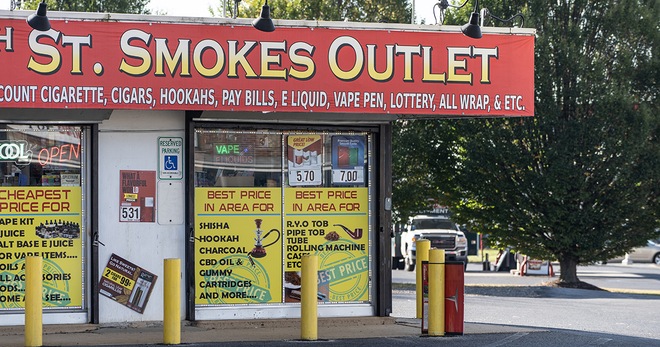How tobacco and vaping companies are exploiting national crises to maintain their bottom lines, putting profit before public health
The tobacco industry has a long history of shamelessly protecting its profits at the expense of people’s lives, most recently by trying to overhaul its image with tactics exposed in the Truth Initiative report “Spinning a New Tobacco Industry.” So it should be no surprise that while Americans die from a devastating pandemic and the country is galvanized by racial injustice, tobacco and vaping companies are exploiting the public health and social justice crises, and the vulnerable communities most impacted by them, to benefit their bank accounts.
Targeting vulnerable groups – especially young people, African Americans and low-income populations – to recruit as “replacement smokers” for the more than 1,300 who die each day from tobacco use has long been central to the tobacco industry playbook. And now newer vaping companies are clearly copying it as they blatantly target young people during a pandemic that impacts lung health.
Here are recent examples from just the past few weeks, including an announcement from Big Tobacco giant Altria that it will donate money to social justice causes, a thinly veiled public relations move rich with hypocrisy as the company ignores its own history of exploiting black Americans by offering up a paltry portion of its billions in profits. Recent weeks have also seen e-cigarette companies use the pandemic to attract young people stuck in their bedrooms and attempt delays and dismissals of regulatory and legal actions intended to protect youth from addictive nicotine found in tobacco products.
Altria makes donation to mask predatory marketing of menthol to the black community
Altria makes donation to mask predatory marketing of menthol to the black community
It’s no accident that nearly 9 in 10 African-American smokers use menthol cigarettes, which are easier to smoke and harder to quit. The tobacco industry strategically and aggressively targeted the black community with menthol cigarettes for decades.
So when Altria announced it would donate $5 million to social justice organizations that address systemic racism, as well as small businesses impacted by recent demonstrations against police brutality, the company couldn’t hide its shameful hypocrisy as it continues to spend billions to market its deadly products.
The death and disease the company’s products have brought on the community are devastating. The black community has disproportionally higher death rates from tobacco-related causes than other racial and ethnic groups and the dangers of tobacco use are especially dire now, as the Centers for Disease Control and Prevention has named smoking a risk factor for developing severe illness from COVID-19, which is also taking a disproportionate toll on the black community.
As the company ignores real actions it could take to save black lives, its donation aligns with a longstanding tobacco industry strategy to protect its business interests. Tobacco companies have a history of making financial contributions to African-American groups and political leaders to ally themselves with the community and help protect against stricter regulations.
“For decades, the tobacco companies have used predatory practices aimed to push their deadly product on to the Black community, practices that contribute to the approximately 45,000 Black people who will die every year from tobacco-related diseases,” said former Truth Initiative® fellow Lincoln Mondy in his documentary "Black Lives / Black Lungs," which explores the history, marketing tactics and impact of the tobacco industry targeting African Americans with menthol tobacco products.

Puff Bar uses the pandemic to market to young people in their bedrooms
Puff Bar uses the pandemic to market to young people at home
The e-cigarette Puff Bar, which comes in many flavors and is not subject to the new partial ban on flavored e-cigarettes because it is a disposable device, appears to be capitalizing on the pandemic by marketing to kids in their bedrooms. Advertisements from the company show an image of a bedroom and promote Puff Bar as a “solo break” from “back-to-back zoom calls, parental texts and WFH stress.”
In a letter to the Food and Drug Administration, Rep. Raja Krishnamoorthi is calling on the agency to immediately remove Puff Bar from the market. Writing that Puff Bar “is quickly becoming the new JUUL,” the Illinois representative highlighted the advertisement and stated that the company “appears to be taking advantage of the coronavirus crisis to explicitly—and illegally—sell its products to school children.”
New research from Truth Initiative shows that disposable e-cigarettes have grown in popularity in response to regulatory moves and that Puff Bar is now the most popular disposable e-cigarette among young people. Of the young people using disposable products, nearly half are using Puff Bar (42%).
Companies ask for oversight delays and dismissals amid the pandemic
Tobacco companies ask for oversight delays and dismissals amid the pandemic
JUUL, which is part-owned by Altria, has requested that a federal judge dismiss or delay hundreds of lawsuits from consumers and local governments about its marketing and role in creating the youth e-cigarette epidemic.
Additionally, while tobacco companies, including Reynolds, continue to ask for delay on review of new tobacco products, they waste no time, even during the COVID-19 pandemic, in challenging common sense restrictions on flavors that will protect our youth. Three Reynolds American Inc. companies are fighting Los Angeles County’s ban on flavored tobacco products and filed a complaint in court.
History has proven, time and time again, that the tobacco industry only looks out for its best interest. For more information on the tobacco industry’s playbook, including newer strategies to remake its image with electronic devices, read our report “Spinning a New Tobacco Industry.”
More in tobacco industry marketing
Want support quitting? Join EX Program
By clicking JOIN, you agree to the Terms, Text Message Terms and Privacy Policy.
Msg&Data rates may apply; msgs are automated.


